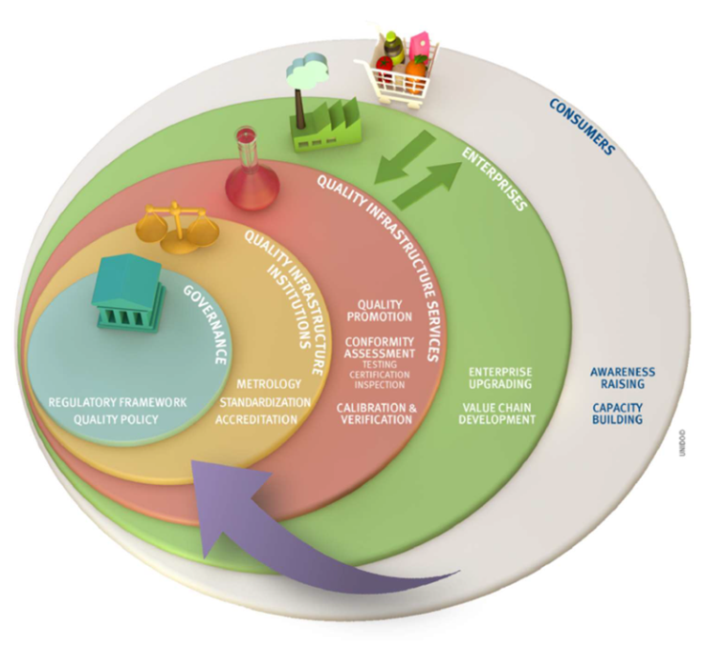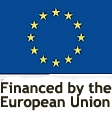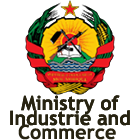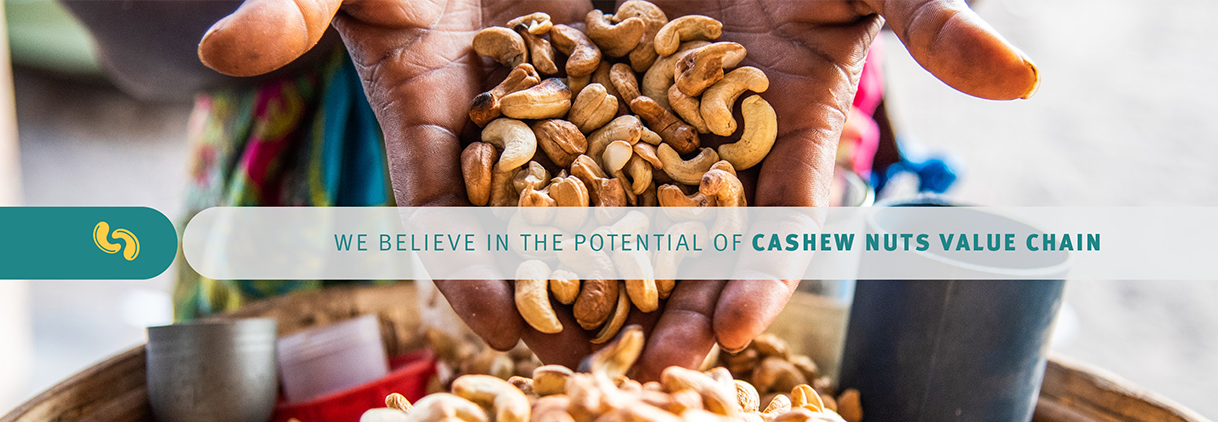Context
The PROMOVE Comércio – Building Competitiveness for Exports Project is taking a two-fold approach to the Quality Infrastructure System strengthening in Mozambique by focusing on:
- Quality Infrastructure as a system – it works as a whole, all of its components/institutions need to work together for it to function properly. The whole system is only as strong as the weakest of its building blocks.
- Priority value chains – The project focusses on the quality infrastructure needs of the private sector. The aim is for relevant QI institutions to become service providers for the private sector, with the particular focus on supporting key value chains in the Agro-products and the Fisheries and Aquaculture sectors. However, the services to be developed will also benefit other sectors.
By promoting priority value chains in Mozambique, UNIDO pursues three development goals that can benefit all actors in the chain by:
- increasing productivity and value added;
- improving employment opportunities; and
- working to enhance market access and higher export levels.
UNIDO approach to the Strengthening of Quality Infrastructure
For SMEs to be competitive in international markets it is important to ensure that they:
- have the technical capacities to produce quality and innovative products,
- comply with international market regulations and standards,
- promote their products and connect to potential markets. For them to achieve the above-mentioned, access to services offered by QI, business development services, financing, sector coordination and dialogue between public and private stakeholders is pivotal.
In this way, for more than 40 years UNIDO has been supporting partner countries to increase their competitiveness through stronger quality infrastructure systems and compliance with standards. UNIDO’s approach to trade capacity building for developing countries has evolved to a holistic and systematic approach, which comprises of five components: governance, quality infrastructure institutions, quality infrastructure services, enterprises/SME and consumers.

UNIDO’s systemic approach for promoting standards and quality
Strengthening quality infrastructure services at the national level is essential for SME to conform to the demanding standards, technical regulations and market requirements, so as to connect and compete in the global market. It contributes to increasing consumer confidence in product safety and quality, including respect for the environment. Furthermore, having policies in place to promote a culture for quality is crucial to ensure an environment where SME, institutions and consumers consistently follow and apply quality guidelines and promote quality-focused actions. The value-added impact of standards compliance includes increased market access, increased speed at which goods cross the borders, acceptance of conformity assessment certificates at both sides of the borders, reduced rejections of goods, and reduced trading costs for private sector, thus making SME and enterprises in general more competitive and sustainable.
Introduction to the Project Results related to the Strengthening of the Quality Infrastructure in Mozambique
Result 1: Good governance and core quality infrastructure services at the institutional level (INNOQ) upgraded to ensure international recognition
This result addresses the important aspect of the strengthening of the core quality infrastructure institution in Mozambique – which is the Instituto Nacional de Normalização e Qualidade (INNOQ). A robust, strong and service oriented INNOQ is a key element of the businesses environment enabling Mozambican private sector to benefit from market opportunities (be it regional or international). This is being achieved through; the promotion of good governance of the Quality Infrastructure – by facilitating the implementation of the updated National Quality Policy and the upgrading of the regulatory framework (with particular focus on the priority value chains); through strengthening expertise at INNOQ for development and adoption of industry driven national standards. Lastly INNOQ needs to establish itself as a demand driven provider of the quality infrastructure services to the private and public sectors. The main areas of focus of the technical assistance in this result are:
- Supporting the implementation of the National Quality Policy (NQP) and upgrading of the regulatory framework:
The project focusses on supporting the implementation and dissemination of the NQP. A demand driven, well implemented quality policy is a foundation for the long-term sustainability of the Quality Infrastructure System in Mozambique and therefore also of the project results. The project also assesses the regulatory gaps and provides the required legal advice on best regulatory practices and technical assistance in order to ensure the technical regulations (TR) related to the selected priority value chains are reviewed and/or developed.
- Standardization capacity of INNOQ is enhanced:
Supporting INNOQ in the area of standardization involved the training of INNOQ’s personnel on good practices in standardization (e.g. so needs of the private sector are well represented and considered), by establishment of technical committees in selected VCs and adoption of international and/or regional standards in priority value chains. Domestication of code of practices and self-assessment tools will be developed and disseminated for products from priority value chains. Promotion of the importance of standards needs in particular focusing on the value chains of interest for greater competitiveness and market access. Ensuring participation of INNOQ personnel to international/regional standardization activities will contribute to keep stakeholders informed on the state of the art solutions and will ensure that they become active participants of the international standardization community (standard makers and not only standard takers).
- Sustainability of INNOQ’s operations is increased (incl. creation of the training unit)
Technical assistance in business strategy and in particular a marketing strategy and plan will aim to raise awareness about INNOQ and quality services in general but also increase INNOQ’s revenue though conversion of leads into new clients. A special focus and extra effort will be dedicated to the promotion of INNOQ’s services (e.g. certification, calibration and trainings) in the provinces of Nampula, Zambézia and Maputo and among the selected value chain actors. As part of the marketing strategy, activities will be organized to increase networking opportunities with key commercial partners.
The project will strengthen the INNOQ training department through strengthening the demand driven training offer and developing new training manuals with particular focus on addressing needs from the selected value chains. Furthermore, the project will develop training competencies of INNOQ staff and other relevant stakeholders on product and system certification and food safety standards. The ultimate results will be not only to train INNOQ staff, but to enable trained staff to train SMEs and producers and implement these standards in the provinces.
The combination of the above mentioned two initiatives will contribute to improve the sustainability of INNOQ and enable the institute to become a service provider to the private sector of state-of-the-art services in the area of quality.
Result 2: Increased technical competences of the conformity assessment service providers and ensuring international recognition as per the needs of the selected value chains with a focus on the provinces of Nampula, Zambézia and Maputo.
Reaching a certain quality requested by international and regional markets leads to the associated challenge of proving conformity with those requirements (related to technical regulations, standards and voluntary and sustainability standards) in internationally recognized way. To be able to respond to this challenge, Mozambique must establish efficient certification, testing and calibration mechanisms that enjoy international recognition. The main areas of focus of the technical assistance in this result are:
- Certification capacity of INNOQ is strengthened with particular focus on the selected value chains:
The INNOQ certification department will be strengthened with the aim to address the gaps in the provision of the quality services identified for the selected value chains (incl. e.g. food safety management systems and product certification). The project will provide the required support to upgrade INNOQ certification services to prepare them for the internationally recognized accreditation in accordance with ISO/IEC 7021 and ISO/IEC 17065 requirements.
- Strengthening of the delivery of the legal metrology function and the offer of the calibration services by INNOQ:
In the area of metrology (legal and industrial), support will be given to strengthen capabilities both on technical and managerial side in view extended or new ISO/IEC 17025 accreditation scopes relevant for the private sector. Assistance includes advisory services (coaching), provision of equipment, services (e.g. calibration, proficiency testing), and technical training.
- Increasing testing capacities of laboratories with particular focus on the priority value chain and the provinces of Nampula, Zambézia and Maputo:
The ability of local testing laboratories to provide internationally recognized (accredited) testing results could bring down the cost of testing, time and complexity needed to obtain results and that will improve the competitive standing of producers in the selected value chains. To secure this, the project will strengthen capabilities of selected testing laboratories in Maputo, Zambézia and Nampula on both technical and managerial side. The laboratories will be prepared towards ISO/IEC 17025 accreditation for those tests which are essential to the agro-products and fisheries and aquaculture sectors, including training, technical assistance for the preparation of the documentation, expert assistance for method validation and measurement uncertainty, quality control and quality assurance, equipment procurement, proficiency testing.









